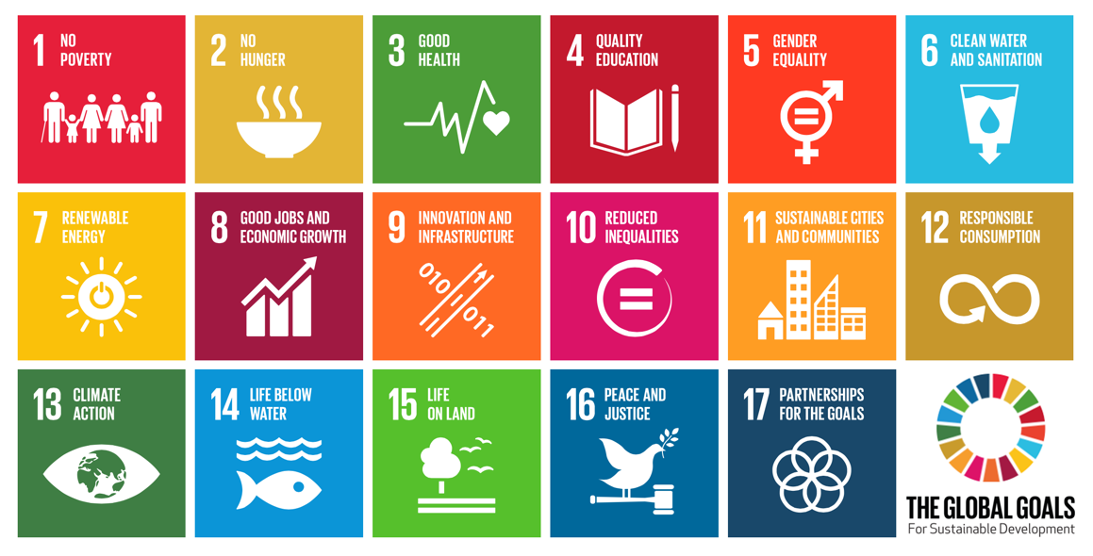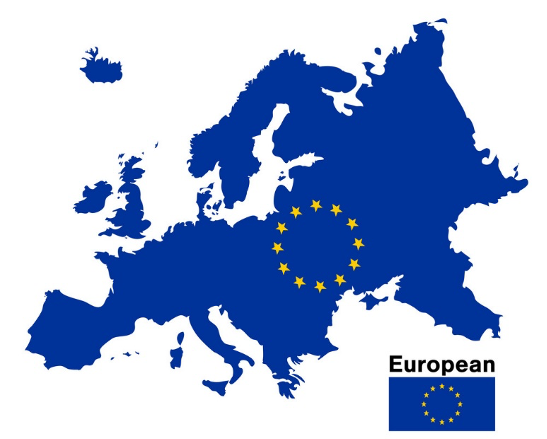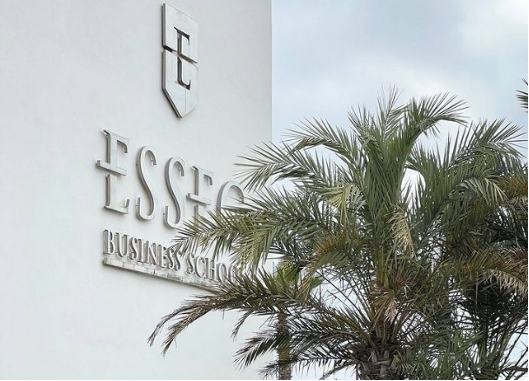You are here :
- EUTOPIA website
- Home
- STUDENTS
- Study
- Ecotopia
Syllabus of ECOTOPIA
Why ECOTOPIA?
Equipping economics and business students to serve planetary well-being with dedication and enthusiasm.
Ecotopia aims to train enlightened citizens and leaders to embrace their future careers and engagements with enthusiasm and confidence in a globalized context. Ecotopia graduates will be highly skilled in the fields of economics, management, finance or business, depending on the nature of their main diploma. Additionally, they will show adaptability, substantial general culture and an enduring taste for lifelong learning and cooperation.
Ecotopia graduates will also be trained to embed sustainability in the responses they bring to the challenges they will have or choose to address throughout their careers and lives as engaged citizens of the world.
Ecotopia partners have decided to unite their forces to offer a 3-year programme simultaneously and in close collaboration on their campuses and provide participating students with the opportunity to work in international teams at the Bachelor level.
The programme grants successful students a European certification in addition to the national and school degrees they complete.
- Course 1: Sustainability and Business
-
The course is dedicated to imparting knowledge on relevant sustainability challenges applied to business. It enables a basic understanding of business unsustainability, supported by discussion of pertinent SDGs in the business context, critical sectors, and the application of advanced sustainability-related practices such as the circular economy and regenerative practices. In addition to the course content, concepts will be introduced through problem-based learning and analyzed through the prism of political considerations, legal aspects, and economic and practical implications.
Objectives
Knowledge
- Understand the stakes and implications for companies in achieving the 17 general objectives of sustainable development.
- Understand the impact of instruments on companies (Green Deal, Strategie Fit for 55)
- Know the obligations of companies and sectors
- Be familiar with the concept of the circular economy
Know-how
- Implement a strategy to change corporate behavior
- Make effective decisions
- Lead and manage a circular economy action plan
- Identify the pitfalls, challenges, and opportunities of the European carbon market
- Know how to create a circular business solution
Soft skills
- Adopt a benevolent attitude
- Adopt a posture of cohesion and mutual support
- Adopt a posture of autonomy and openness (ways of acquiring knowledge, culture, etc.)
Programme Details:
Module 1: General Strategy - SDGs and Sustainable Business (3h)
Module 2: Sectors with the Greatest Impact - Sustainable hotSpots (9h)
2.1 The Impact of Instruments on Companies
2.2 The Climate Act and the Circular Economy Action Plan
2.3 The Sustainable Product Strategy and the Sustainable Circular Textiles Strategy
2.4 The European Plastic Strategy (from Food to Packaging)
2.5 The European Carbon Market
2.6 Summary of the Most Important Concepts
Module 3: The Circular Economy (9h)
3.1 Introduction to the Circular Economy Concept
3.2 Understanding the Circular Economy in the Context of the EU Framework
3.3 Systems Approach - Moving from A Linear to A Circular Mindset
3.4 Circular Business Models
3.5 Circular Economy and Network Governance
3.6 The Circular Enterprise ChallengePrerequisites
The general prerequisites are a good knowledge of business management and how a company operates. There are no specific prerequisites for this course, just a genuine interest in sustainability and a brief familiarity with the sustainable development goals of the UN's Agenda 2030.
Language Requirement
English B2Technical, Pedagogical, and Supervisory Arrangements
Distance Learning
The course will take place over a full term, with twelve (12) one-and-a-half-hour sessions. Each session will consist of a presentation by the teacher, a discussion of the required readings, and, in some cases, additional activities addressing specific questions in the course. Active student participation will be required, depending on the nature of these activities. The readings for each session are compulsory as a basis for discussion, without exception. An approach close to the problem-based learning method.
Professors
Luciana Oranges Cezarino (Ca'Foscari University), Prof. Dr. Lela Mélon (ESCI-UPF), Ladeja Godina Kosir (Circular Change)
Assessment
Assessment of knowledge or training results: continuous during the module and at the end of each training session.
In addition to lectures, course activities will involve coursework, reading assignments, and active student participation. Assessment of the course will combine continuous assessment and a final exam, according to the following criteria:
Part I exam: 20
Examination of Part II: 40
Part III examination: 40%.
An additional 10% may be awarded for exceptional active participation in class.
Retake Conditions
For students who fail the course after the final exam, it will be possible to retake the exam while retaining grades for homework and course participation.
- Summer School 1: Circular Economy
-
The Ecotopia Circular Economy summer school aims to present an alternative approach to building a prosperous and sustainable economy via the circular or regenerative approach. The summer school program integrates the practical and theoretical knowledge imparted during the ECOTOPIA modules. The program offers a pragmatic approach and an overview of the implementation of solutions in the field of the circular economy. Students work around case studies, conduct study visits, and contribute to participatory workshops.
Objectives
Knowledge
- Understand the challenges of today's circular economy
- Be familiar with systems thinking to approach circularity
- Understand the challenges of the circular economy as a whole.
- Search for solutions
- Know how to work in a team
- Be able to assess one's own knowledge and experience critically
- Know how to implement a feedback system
- Adopt a cooperative attitude
- Adopt an intercultural posture
Programme Details
Day 1: What is the circular economy today?
Day 2: Participatory workshop (learning by doing)
Day 3: Virtual tour of Aquafil's facilities
Day 4: Study visit to KNOF's circular laboratory in Krsko
Day 5: Presentation of case studies
Prerequisites
Language Requirement : English B2
Technical, Pedagogical and Supervisory Arrangements
In-person format: 5 days
Individual Distance Interview : 20 minutes per interview
Professors
Maja ZALAZNK, Ladeja GODINA KOSIR, Marco A. SEGOVIA BIFARINI, Charlotte SIMUNEK
Assessment Criteria
Relevance of case study descriptionsAbility to link theoretical and practical knowledge
- Course 2: Sustainability and Europe
-
The course imparts knowledge on relevant sustainability challenges applied in Europe. It will examine the role of EU institutions in understanding the impact of migration, and economic and agricultural policies on promoting sustainable development. The course will address the role of international trade and EU governance in its history and future.Concepts will be introduced through problem-based learning and a reflective approach.
Objectives
- Understand the challenges of EU institutional responses
- Understand the impact of the circular economy on the labor market (Green Deal, Strategie Fit for 55)
- Knowledge of agricultural policies
- Knowledge of European governance issues
- Promote sustainable development
- Make effective decisions
- Conduct and manage an action plan for the circular economy
- Identify the pitfalls, challenges, and opportunities of the European market in an international trade context
- Be autonomous and open-minded
- Adopt an agile and creative posture
Programme Details
Module 1: The EU at Crossroads: Institutional Responses (3h)
Current challenges facing the EU - international context (macro-economic approach)
The role of EU institutions in promoting sustainable development, the SDGs, and EU priorities.
Module 2: On the Road to Sustainable Development: Shaping EU Economic Policies (3h)
Transition to the circular economy: The impact on the labor marketGreen Deal and Fit for 55: The EU's green transition plan, sustainable development in business
Module 3: The Sustainable Development Perspective of the EU's Common Agricultural Policy (3h)
Agriculture and sustainable development: greening or greenwashing?
EU Common Agricultural Policy reforms on sustainable development: from increasing productivity to promoting a resilient agricultural sector
Module 4: Restoring the EU's Competitiveness: The Importance of International Trade and its Sustainability (3h)
The effects of trade on EU growth
Sustainable development in EU trade agreements
Module 5: Economics and Governance of Sustainable Development (3h)
Reconsidering EU governance: old and new approaches
Economic governance indicators as promoters of sustainable development
Module 6: Recapitulation of the Main Concepts Covered (3h)
The EU - history and future
Prerequisites
The general prerequisites are a good knowledge of business management and company operations. There are no specific prerequisites for this course, just a genuine interest in sustainability and a brief familiarity with the sustainable development goals of the UN Agenda 2030.
Language Requirement: English B2
Technical, Pedagogical, and Supervisory Arrangements
Distance Learning
The course will take place over a full term, with twelve (12) one-and-a-half-hour sessions. Each session will consist of a presentation by the teacher, a discussion of the required readings, and, in some cases, additional activities addressing specific questions in the course. Active student participation will be required, depending on the nature of these activities. The readings for each session are compulsory as a basis for discussion, without exception. An approach close to the problem-based learning method.
Professors
Ioana ANDREICA, Liviu DECEANU, Leonard HORVATH
Assessment of Knowledge and Training Results
Continuous throughout the module and at the end of each training session.
Assessment criteria:
In addition to lectures, course activities will involve coursework, reading assignments, and active student participation. Assessment of the course will combine continuous assessment and a final exam, according to the following criteria:
Part I exam: 20
Examination of Part II: 40
Part III examination: 40%.
An additional 10% may be awarded for exceptional active participation in class.
Retake Conditions
For students who fail the course after the final exam, it will be possible to retake the exam while retaining grades for homework and course participation.
- Project Y2: Exploring a Specific Local Sustainability Landscape
-
This project aims to provide a space for intercultural teamwork, appropriation of the content of courses 1 and 2, an opportunity for fieldwork, data collection, research, and analysis, as well as concrete proposals for a more sustainable future.It will thus be an inherently collaborative modality of Ecotopia, bringing together the student team, the contributors, and the resources mobilized, as well as stakeholders in the chosen field of study, in a logic of research and participative observation (method of investigation, design of proposals, continuous evaluation, sharing of results from the different phases of the project). In this sense, it will also be a means of acculturating students to intercultural and research dynamics.
This activity enables students to engage in research and teamwork while learning about the various players in the sustainability field and their impact on important issues. It also encourages critical thinking and analysis, as students need to consider the strengths and challenges of different actors and how they might work together to address sustainability issues. It allows students to see what the concepts of courses 1 and 2 become once implemented.
Objectives
Knowledge
- Mastery of the academic contents in courses 1 and 2 and the Summer School (regulations, policies, practices, etc.)
Know-How
- Demonstration of the methods in courses 1 and 2 and the Summer School (circular economy, sustainable practices, etc.)
- Use of research methods (data collection, field study, survey, analysis, synthesis and presentation)
Project management (time management, distribution of work, documentation of processes, etc.)
Soft Skills
- Intercultural communication
- Openness to learning
- Ability to question ready-made judgements and established rules, to be critical and constructive
- Assertiveness and cooperation balance
Project Sequence
Step 1
Form small teams at the beginning of semester 3.
Step 2
Each team must identify a specific theme and question they would like to work on as a team. They then need to identify stakeholders in the local context of their exchange year and players in sustainable development, such as government agencies, non-profit organizations, companies, or individual activists. Some teams can compare two different locations too.
November 2023: Team interview
Presentation of the theme, approach, and identified stakeholders.
- immediate feedback from the faculty and evaluation.
Step 3
Each team must research its stakeholders, including their mission, objectives, and key sustainability initiatives. Teams should also look at the actors' impact on sustainability efforts and any challenges or controversies they have faced. With the research conducted by individual students, the team must define an approach which will be the backbone of their poster.
April 2024: Team interview
Presentation and defence of the poster.
Evaluation of the poster and supporting research file.
Step 4
As a final project, each team will present the result of their research as a background and a plan for action to a jury of stakeholders.
May 2024: Team interview by a jury
Evaluation of the plan of action.
Assessment
Criteria
Listed in the Objective section
Grading Scale
Interview 1: 10%
Research, poster and presentation: 50%
Plan for action and presentation to the jury: 40%
Technical, Pedagogical and Supervisory Arrangements
Training Format
Face-to-face during the Summer School, then distance learning and on-site team collaboration
Professors
Charlotte Simunek, Malini Sumputh
Prerequisites
English B2
- Course 3: Sustainable Cities
-
The course is devoted to imparting knowledge on the concept of a sustainable city, which seeks to take account of social, economic, and environmental issues in its planning and operation. The course aims to analyse the indicators that accompany the preservation of resources, landscapes, and the population's living environment. The course will address the role of local authorities in a global network for sustainable development. Concepts will be introduced through problem-based learning and a reflective and comparative approach to three metropolises (African, Asian, and European).
Objectives
Knowledge
- Understand the challenges of resource preservation
- Understand the impact of regional planning
- Understand the impact of local authorities in a global network.
Know-How
- Analyse indicators of a "sustainable city
- Support the preservation of resources
- Conduct and manage an action plan for the development of a sustainable city
- Identify the intercultural challenges and opportunities of a local context within an international network.
Soft Skills
- Adopt a posture of autonomy and openness
- Adopt an agile and creative posture
Program Details Under Development
Module 1Geographical location, infrastructures and territorial approach and their impact on sustainable development: example of an African metropolis
Module 2The historical challenge and its impact on the preservation of cultural, economic and social heritage: the example of a European metropolis
Module 3
Geopolitical issues, the complexity of belief systems and reference values, and their impact on strategic zones and areas of influence: the example of an Asian metropolis
Prerequisites
The general prerequisites are a good knowledge of business management and how a company operates. There are no specific prerequisites for this course, just a genuine interest in sustainability and a brief familiarity with the sustainable development goals of the UN Agenda 2030.
Language Requirement: English B2Technical, Pedagogical and Supervisory Arrangements
Distance Learning
The course takes place over a full term, with twelve (12) one-and-a-half-hour sessions. Each session will consist of a presentation by the professor, a discussion of the compulsory readings, and, in some cases, additional activities addressing specific questions in the course. Depending on the nature of these activities. The readings for each session are compulsory as a basis for discussion, without exception. An approach close to the problem-based learning method.
Professors
In addition to lectures, course activities involve coursework, reading assignments, and active student participation. Assessment of the course will combine continuous assessment and a final exam, according to the following criteria:
Valentina FAVA & team
Assessment of Knowledge and Training Results
Continuous throughout the module and at the end of each training session.
Assessment Criteria
Part I exam: 20
Examination of Part II: 40
Part III examination: 40%.
An additional 10% may be awarded for exceptional active participation in class.
Retake Conditions
For students who fail the course after the final exam, it will be possible to retake the exam while retaining grades for homework and course participation.
- Summer School 2: Innovation and Entrepreneurship in Africa
-
The "Innovation and Entrepreneurship in Africa" summer school consists of thematic modules spread over three weeks and is designed for undergraduates interested in African cultures and business perspectives.The main objective of this immersive program is to give participants essential skills to understand the main challenges and specificities of doing business in/with Africa
Objectives
Knowledge
- Know the challenges and specificities of doing business in/with Africa- Understanding the diversity of commercial and entrepreneurial practices
- Learn about the characteristics of Arab-Muslim culture
- Understand the technological challenges of data and AI in Africa
Know-how
- Creating team cohesion
- Communicating in an intercultural context
- Discuss the key elements of world politics and power distribution between nations.
- Identify economic challenges to understand Africa's business climate
Soft Skills
- Adopting a cooperative posture
- Adopting an intercultural posture
Program Details
The thematic modules taught during this Summer School are as follows:
- African Geopolitics
- Artificial Intelligence
- Doing Business in Africa
- Entrepreneurship and Start-ups in Africa
- Introduction to Arab-Muslim Culture and Society
- Moroccan Arabic Course (optional)
Students will meet and interact with local experts and professionals who will help them understand the diversity of African business and entrepreneurial practices. They will also visit local businesses and associations.
Prerequisites
Language Requirement: English B2
Technical, Pedagogical, and Supervisory Arrangements
Face-to-face: 90 hours
Duration: 15 days ( 1- 19 July 2024)
Professors: Yousra ABOURABI, Assia BENABDELKADER, Youssef BOUYAKHF, Hafsa EL BEKRI, Oumel Ghit GUELZIM, Soulaimane LAHRECH, Abdelkarim RADDADI
Assessment Criteria:
The relevance of case study descriptions
The ability to link theoretical and practical knowledge
- Skills Portfolio
-
The portfolio is only a tool. It is not the portfolio that is assessed, but rather the development of the skills that the student demonstrates in their portfolio. Only the competency is assessed through the portfolio, and nothing else (no form or spelling criteria).
The portfolio, which brings together different resources, enables teachers who don't have the opportunity to see the student in action regularly to discuss the quality of his or her actions, learning, and adaptation to assess their skills.
This document focuses on learning. It is a record of sample evidence selected by the students to give an account of their learning. It is the student's production, enabling "self-judgment" on the development of their skill(s). It shows the student's actions, learning and reflections.
Objectives
Knowledge
- Understanding the value of describing, analysing and making explicit one's experiences
- Knowing the different forms of experience (formal, informal, and non-formal)
Know-how
- Knowing how to trace and prove one's experiences
- Telling one’s own story- Identifying transversal and transferable skills
- Taking a critical view of one's knowledge and experience
- Implementing a feedback system
Soft Skills- Adopting a cooperative attitude
- Adopting an attitude of cohesion and mutual aid- Adopting a non-judgmental approach
- Adopting an attitude of respect and confidentiality
Programme Details
Step 1: Discovery Workshop: Summer School in Ljubljana
Introduction to the Portfolio and workshop to identify the values and skills targeted by the Ecotopia Certification.
Step 2: Preparation of the Life Story Phase and Interview: November 2023
Collection of a first set of proofs of skill development in sustainability and international cooperation. Interview and guidance for the next phase
Step 3: Personal Collection of Proof of Shill Development: December 2023 - June 2025
Regular contact with professors and feedback
Prerequisites
Sensitivity to the life story approach
Language Requirement: English B2
Technical, Pedagogical and Supervisory Arrangements
Duration: July 2023 to July 2025 (2 years)
Distance Learning Format: Individual work and distance interviews.
Professors: Charlotte SIMUNEK, Malini SUMPUTH
Evaluation Criteria: Relevance of the description of significant experiences about knowledge, know-how and soft skills.
Deliverable: A personal portfolio of skills following the template provided and including annexes supporting the content of the portfolio. Variations in the format can be discussed on a case-to-case basis.








